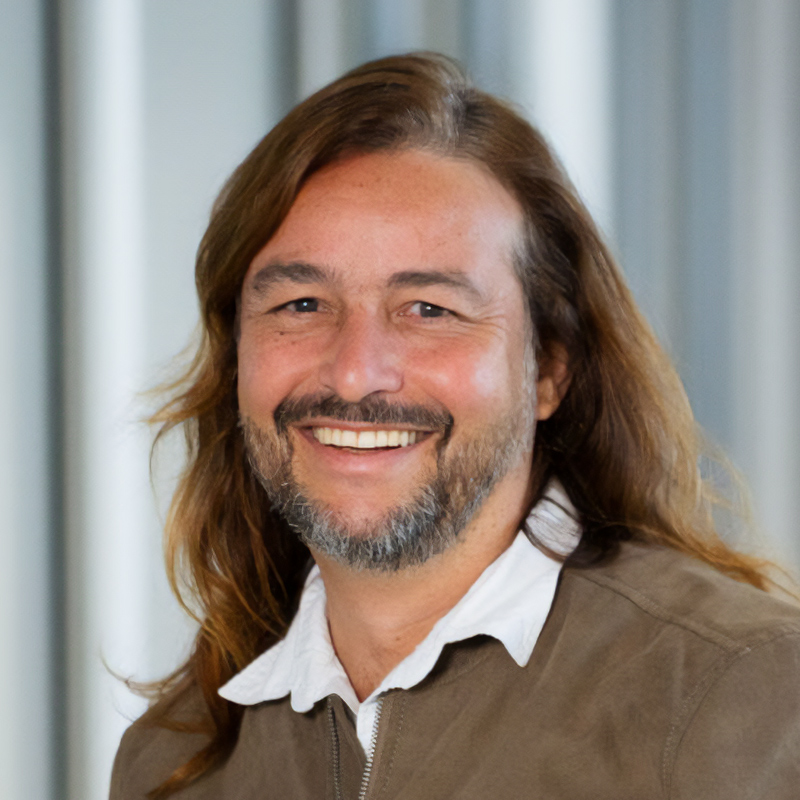
Prof Tulio de Oliveira
Former Deputy Director, Genomic Surveillance Unit
Alumni
This person is a member of Sanger Institute Alumni.
Professor Tulio de Oliveria was the Deputy Director of the Genomic Surveillance Unit. Following a strategic review the Wellcome Sanger Institute decided to disband its Genomic Surveillance Unit in 2026 as part of a broader institutional shift to focus exclusively on fundamental discovery science.
Prof Tulio de Oliveira has over 20 years experience working with disease outbreaks, including HIV, Hepatitis B and C, Chikungunya, Dengue, SARS-CoV-2, Zika, and Yellow Fever. He continues this work as the director of the Centre for Epidemic Response and Innovation (CERI) at Stellenbosch University and the KwaZulu-Natal Research Innovation and Sequencing Platform (KRISP) at the University of KwaZulu-Natal.
In 2021, Tulio was included in Nature’s 10 and in 2022 in the TIME 100 most influential people list, in acknowledgement of his work tracking variants of the SARS-CoV-2 virus. In 2022, he was awarded the German Africa Prize and in 2023 he received the Order of Merit Medal of Portugal (with a title of Commander).
Tulio has a particular interest in how climate change impacts the spread of infectious diseases, and is a leading voice within the CLIMADE consortium. In December 2023, he presented CLIMADE’s findings at a major symposium focusing on climate change and health at COP28 – the first such health event to feature in the annual COP meetings.
In January 2024, Tulio was appointed Deputy Director of the Sanger Institute’s Genomic Surveillance Unit as part of a strategic partnership with CERI.
Centre for Epidemic Response and Innovation (CERI)
CERI works to identify new variants of pathogens and advance basic and translational science, with an aim to improve prevention, treatment, and vaccines for human disease in Africa.
As the director of CERI, Tulio leads a team of scientists, clinicians, and public health officials. CERI’s vision is to effectively respond to epidemics through the genomic surveillance of pathogens. By doing so, the team aims to enhance biomedical discovery, improve treatment, diagnosis and prevention of human disease, and generate economic opportunities for Africa.
CERI brings together world-class scientists to form the largest Genomics Centre in Africa. CERI collaborates with leading research organisations as part of the Network for Genomic Surveillance in South Africa (NGS-SA), a collaboration that has led to South Africa being one of the leading examples in the world for the application of genomics surveillance to SARS-CoV-2 and other pathogens.
CERI was formally established in 2022, following the team’s work during the COVID-19 pandemic. It has sequenced over 32,000 pathogen genomes to date, encompassing 26 different pathogens. Areas of interest for CERI currently include vaccine evaluation, antimicrobial resistance, and the future of computational intelligence and bioinformatics.
My timeline
Deputy Director of the Genomic Surveillance Unit at the Wellcome Sanger Institute
Founding Director of the Centre for Epidemic Response and Innovation (CERI), Stellenbosch University, South Africa
Professor of Bioinformatics at the School for Data Science and Computational Thinking, Stellenbosch University, South Africa
Associate Professor on Global Health at the University of Washington, Seattle, USA
Founding Director of the KwaZulu-Natal Research Innovation and Sequencing Platform (KRISP), University of KwaZulu-Natal, South Africa
Professor of Medicine, College of Health Sciences, University of KwaZulu-Natal (UKZN), Durban, South Africa
Royal Society Newton Advanced Fellow at the Wellcome Sanger Institute and the University of Edinburgh, UK
Program Director of Genomics, Wellcome Africa Centre for Health and Population Studies, South Africa
Senior Research and group lead, South African National Bioinformatics Institute (SANBI), South Africa
Marie Curie Research Fellow at the University of Oxford, UK
MSc/PhD at the Wellcome Africa Centre for Health and Population Studies, Nelson R Mandela School of Medicine, UKZN, South Africa
BSc at the Federal University of Rio Grande do Sul (UFRGS), Brazil